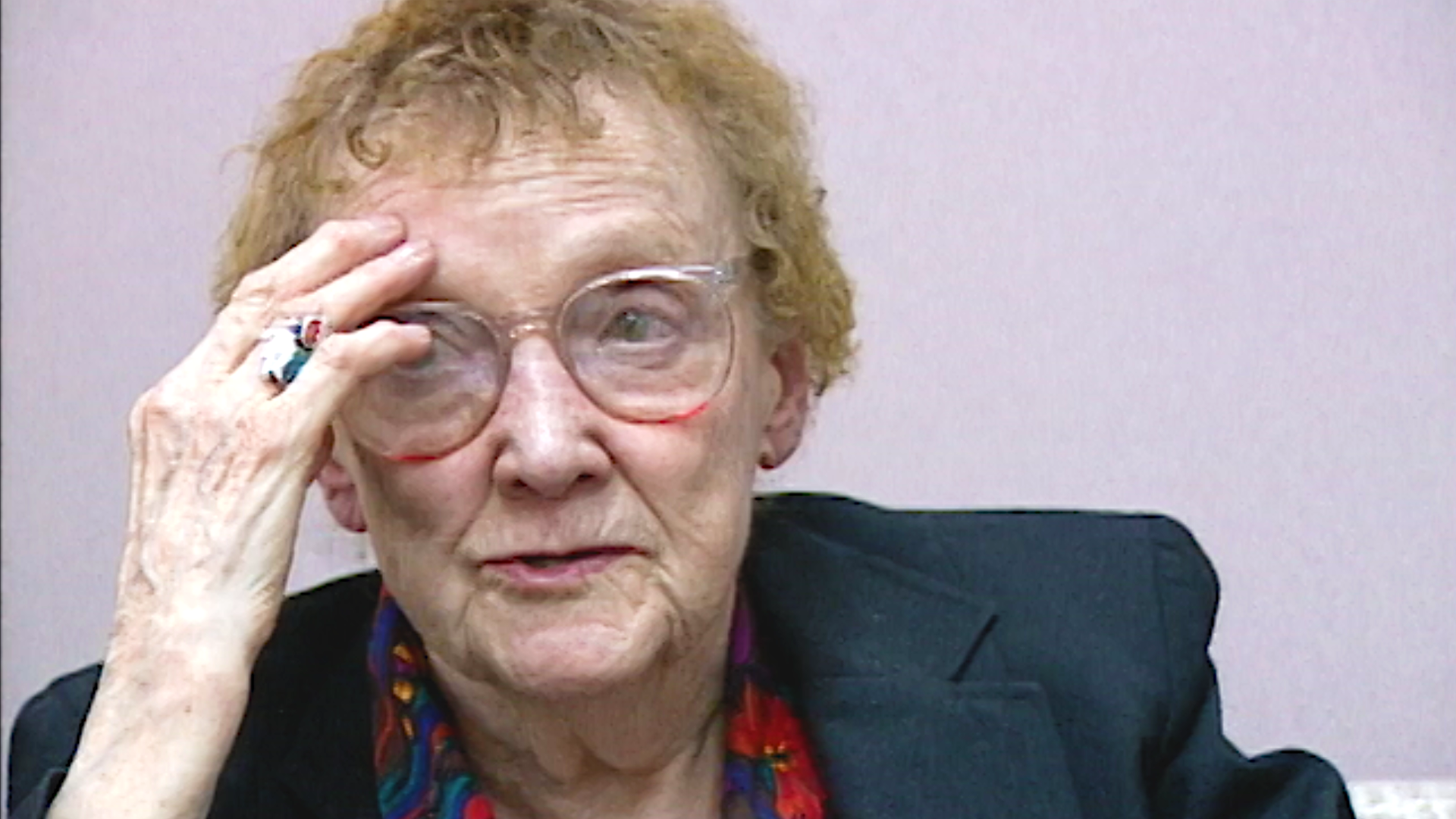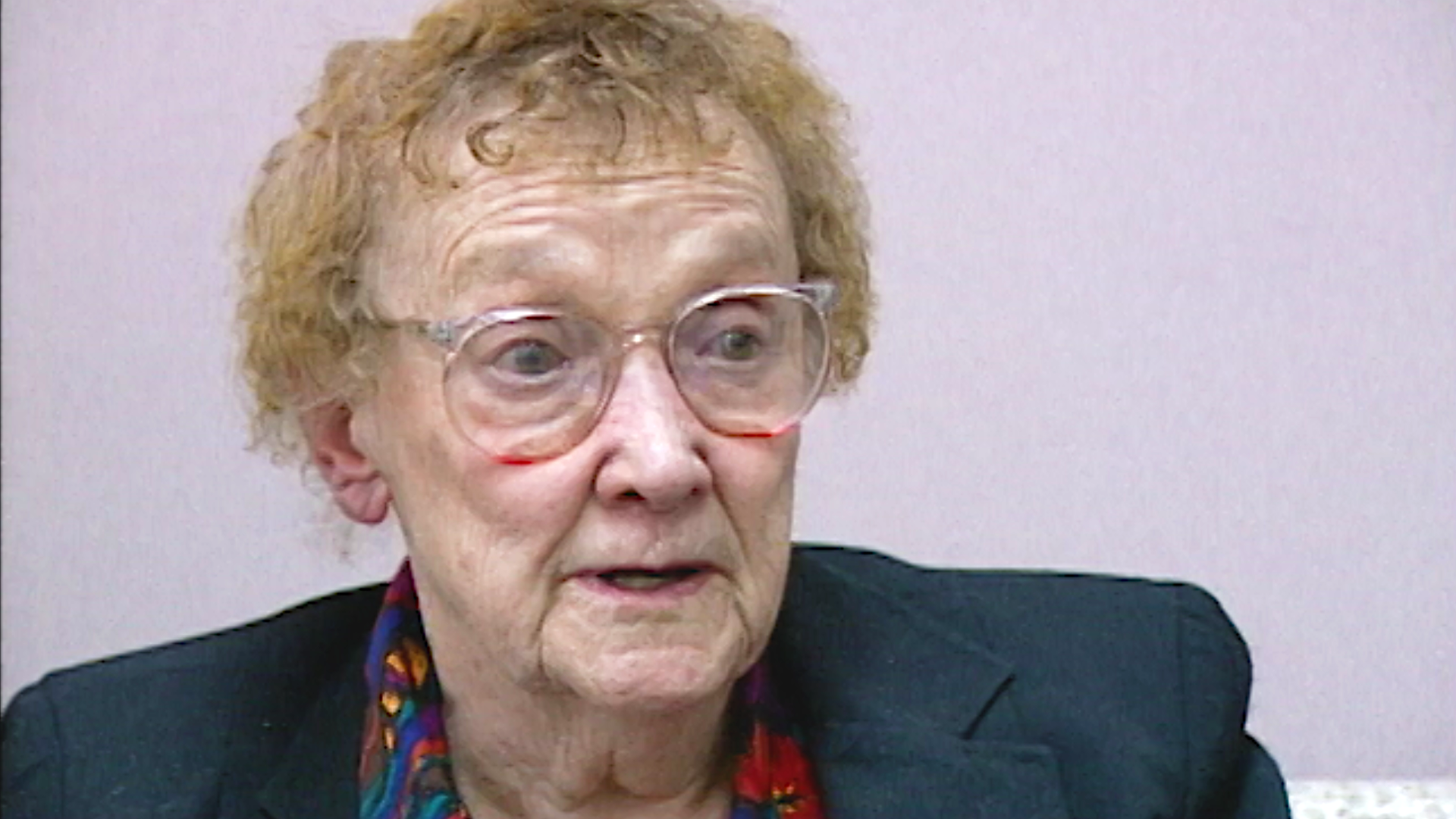We were back, we had gone, by that time, we were back at the,
at base hospital in Turnhout, I think it was, that's where our
base hospital was then, and we went back. That's the first time
then, we were all back together again since we were all farmed
out in different places in the, in CCS's or other hospitals.
So it was great rejoicing, I mean, there were parades and people
were, were dancing around. We were mostly with ourselves,
there might have been some Belgian, the Belgian people,
but it was mostly our, ourselves, you know, and we were watching
the parades and they were watching. They were happy, you know,
you could see that from the streets and everything that they were
I didn't stay, I had said I wouldn't stay. Soon as they were
going back, that I, I wanted to go back and I, I didn't plan to
stay in the army. So I went back, I don't know if it was July or
June or when it was. It was after, anyway, after the,
after the war was over. The war was over in...
Interviewer: So you didn't stay in Europe any longer than....
No, not any longer than, I left, I was at the base hospital but
then I left. Well, we were at that, that base hospital, we had
German prisoners and they weren't, they weren't any different
than our own people as far as looking after them. Somebody asked
me that question, said did I mind and I said, "No, I didn't."
I didn't mind. They were sick and they needed looking after and I
said, "When you talk to them, they had a little bit of English,
they'd say, showed us pictures of their children and they'd say,
you know, the war, they hoped the war was over." That was just
before it was over. They would hope it was over and they'd get
back to the children and they'd show all these pictures well,
as far as that, they were no different than our own people.
And the fact that they needed care, you know, that's why
we're there is to give care to them. (Exactly.)
That, there may have been one or two and
if they were a little cocky about it, it would be more the
officers than the, than the enlisted men.
Interviewer: The officers might give them a hard time?
The, the officers would say, I know with one officer, I said
something about, he'd spoke English very well and I said,
"You speak English." And he said, "We learned it in school."
Took me very oddly, kind of you know for a (inaudible) well,
perhaps he did. But they were a little, a little, a little more
distanced. Of course, our own, our own people used to try once in
a while too at those kind of things. I was in a ward and I think
they were half teasing me and half not but I had said to one
that he had to stay in bed. I was doing a dressing and I said,
"You better. You're up." I said, "You're not supposed to be up.
You better go back to bed." And he said, "You can't tell me what
to do because I'm a captain!" So I, I was just going to reply
to him and there was also another fellow up higher rank than he
had, a colonel or someone, he said, "Oh yes she can." He said,
"You lose all your, your, your upmanship." He said, "The Nursing
Sister's in charge here." And I said, "That's right!"





